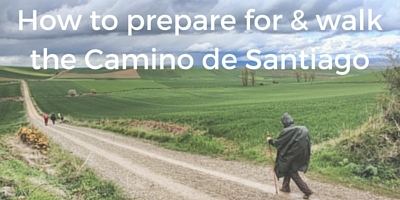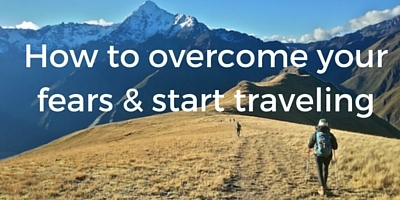Photo: Indian girl practicing English
After a failed climb of K2 in Pakistan Greg Mortenson set out on a mission of another kind – one that required an immense amount of perseverance and passion beyond K2. This is the true story of Greg Mortenson’s journey to “promote peace one school at a time” I thought that I would like this story – it has all of my favorite elements – non-fiction, global travel, athleticism/drive, and giving back; yet I not only liked it, I loved it. I can say that it is my favorite book I’ve ever read. Finally – I have an answer for stupid online dating questionnaires…”What’s your favorite book?”
Photo: Kids at a village school in Vietnam
After his failed attempt on K2, Greg wandered into an impoverished Pakistan village, Korphe. He was lost and disoriented but was moved by the kindness of the people who took care of him. Korphe was a hearty village – it had to be to survive in the barren mountains, high altitude, and harsh winters. After seeing the village kids had no school, but as an alternative sometimes gathered to draw lessons with a stick in the dirt – he vowed that if the Pakistan government couldn’t provide a school – he would.
One of the things that I loved about Greg was that he was a man of his word – something that I try to live my life by and have the utmost respect for. Greg had no idea how to make school commitment happen, but he was scrappy and determined. His journey was full of learnings and strife as he came to really understand the Pakistani people in this region, their Muslim religion, their language, their customs, how they did business, and their pace. All countries have a pace – I believe America to be the fastest pace country I’ve ever been in. Pakistan’s pace was SSSLLOOWWW.
Photo: The world is a mixture of religions

This book made the reader really think about religion, morals, empowering women, politics, global travel, and culture. I read the book with a highlighter in hand – marking my favorite passages that moved me. This should give you a bit of flavor of the book:
“I used to assume that the direction of ‘progress’ was somehow inevitable, not to be questioned. I passively accepted a new road through the middle of the park, a steel and glass bank where a 200 year old church had stood…and the fact that life seemed to get harder and faster with each day. I do not anymore. In Ladakh I have learned that there is more than one path into the future and I have had the privilege to witness another , saner, way of life – a pattern of existence based on the co-evolution between human beings and the earth.” From Halena Norberg Hodge author of Ancient Futures
“The bridge strengthened the village’s maternal ties, and made the women feel a whole lot happier and less isolated. Who knew that something as simple as a bridge could empower women?”
“When I lost him and thought he might die out on the ice, I was awake all night, praying to Allah that I might be allowed to save him.”
“That day, Haji Ali taught me the most important lesson I’ve ever learned in my life,” Mortenson says. “we Americans think you have to accomplish everything quickly. We’re the country of thirty-minute power lunches and two minute football drills. Our leaders thought their ‘shock and awe’ campaign could end the war in Iraq before it even started. Haji Ali taught me to share three cups of tea, to slow down and make building relationships as important as building projects. He taught me that I had more to learn from the people I work with than I could ever hope to teach them.”
“Once you educate the boys, they tend to leave the villages and go search for work in the cities, “ Mortenson explains. “But the girls stay home, become leaders in the community, and pass on what they’ve learned. If you really want to change a culture, to empower women, improve basic hygiene and health care, and fight high rates of infant mortality, the answer is to educate girls.”
“I wish Westerners who misunderstand Muslims could have seen Syed Abbas in action that day,” Mortenson says. “They would see that most people who practice the true teachings of Islam, even conservative mullahs like Syed Abbas, believe in peace and justice, not in terror. Just as the Torah and Bible teach concern for those in distress, the Koran instructs all Muslims to make caring for widows, orphans, and refugees a priority.”
“A village called New York has been bombed.”
“We share in the sorrow as people weep and suffer in America today,” he said, pushing his thick glasses firmly into place, “as we inaugurate this school. Those who have committed this evil act against the innocent, the women and children, to create thousands of widows and orphans do not do so in the name of Islam. By the grace of Allah the Almighty, may justice be served upon them.”—Syed Abbas
“These two Christian men have come halfway around the world to show our Muslim children the light of education,” Abbas said. “Why have we not been able to bring education to our children on our own? Fathers and parents, I implore you to dedicate your full effort and commitment to see that all your children are educated. Otherwise, they will merely graze like sheep in the field, at the mercy of nature and the world changing so terrifyingly around us.”
“I request America to look into our hearts,” Abbas continued, his voice straining with emotion,”and see that the great majority of us are not terrorists, but good and simple people. Our land is stricken with poverty because we are without education. But today, another candle of knowledge has been lit. In the name of Allah the Almighty, may it light our way out of the darkness we find ourselves in.”
Photo: African school kids

If you do decide to buy the book please purchase it through the Three Cups of Tea website www.threecupsoftea.com . Then click on the Amazon link . By clicking through their website before going to Amazon via their link – they get some proceeds that goes to the NGO.





